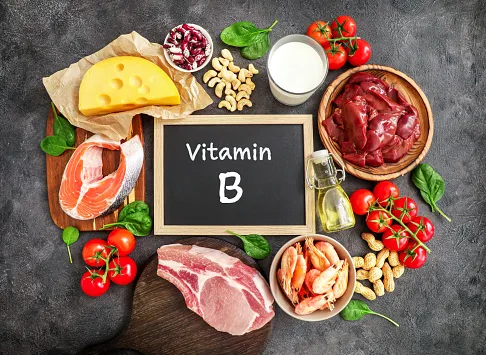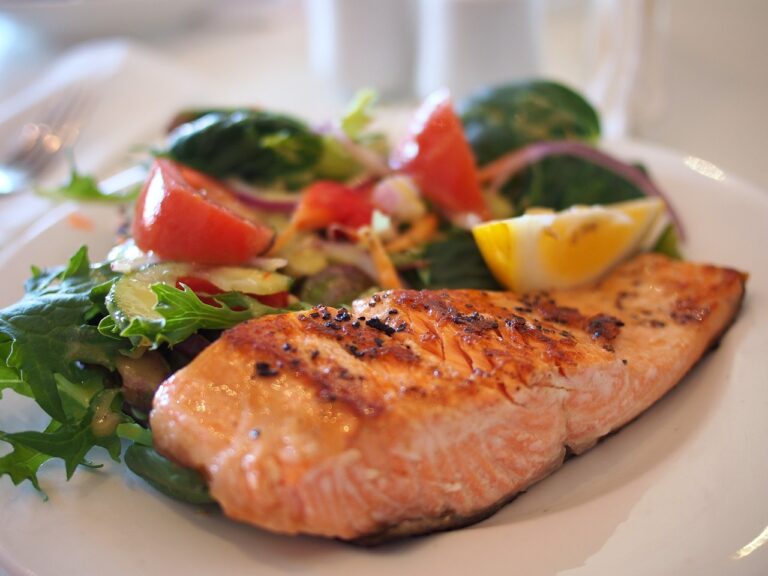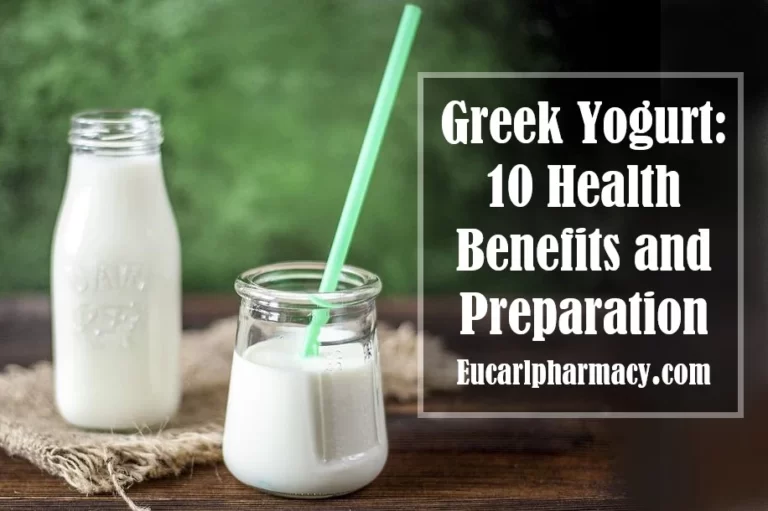10 Healthy Foods Rich In Estrogen
Estrogen is a hormone produced by the body that plays a vital role in the development and function of the female reproductive system. It is also involved in other processes in the body, such as bone health and cardiovascular function.
The production of estrogen is regulated by the endocrine system, and the levels of estrogen in the body can be affected by various factors, such as diet and lifestyle. There is some evidence to suggest that certain foods may have the potential to affect estrogen levels in the body. For example, some foods contain compounds that have estrogen-like effects or may affect the body’s production of estrogen.
In this article, we will discuss 10 healthy foods rich in estrogen that may have some potential to affect estrogen levels in the body. It is important to note that the effect of these foods on estrogen levels may vary depending on a person’s individual biology and overall diet and lifestyle. It is also important to speak with a healthcare provider about any questions or concerns about estrogen levels and how they may affect your health.
10 Healthy Foods Rich In estrogen
It is important to note that estrogen is a hormone produced by the body and is not something that can be found in food. However, some foods may contain compounds that have estrogen-like effects or may affect the body’s production of estrogen. Here is a list of 10 healthy foods rich In estrogen:

Soybeans and soy-based products
Soybeans are a good source of protein and are commonly used in a variety of dishes and cuisine, such as moin moin and akara. They contain compounds called isoflavones, which have estrogen-like effects on the body.
Some studies have suggested that consuming soy-based products may have a variety of potential health benefits, such as reducing the risk of certain types of cancer and improving bone health.
However, it is important to note that the evidence on the effects of soy on estrogen levels is mixed, and more research is needed to fully understand its effects.
Flaxseeds
Flaxseeds are a good source of fiber and omega-3 fatty acids and are commonly used in dishes. They contain lignans, which are plant compounds that may have estrogen-like effects on the body.
Some studies have suggested that consuming flaxseeds may have potential health benefits, such as reducing the risk of certain types of cancer and improving heart health. However, it is important to note that the evidence on the effects of flaxseeds on estrogen levels is mixed, and more research is needed to fully understand its effects.
Legumes
Legumes, such as beans and lentils, are a good source of protein and are commonly used in dishes. They contain compounds called phytoestrogens, which have estrogen-like effects on the body.
Some studies have suggested that consuming legumes may have potential health benefits, such as reducing the risk of certain types of cancer and improving heart health. However, it is important to note that the evidence on the effects of legumes on estrogen levels is mixed, and more research is needed to fully understand its effects.
Fruits and vegetables
Fruits and vegetables are an important part of a healthy diet and are commonly consumed in cuisine. Some fruits and vegetables, such as apples, berries, and cruciferous vegetables like broccoli and cabbage, contain compounds that may affect estrogen levels in the body.
However, it is important to note that the evidence on the effects of specific fruits and vegetables on estrogen levels is limited, and more research is needed to fully understand their effects.
Nuts and seeds
Nuts and seeds, such as almonds and sunflower seeds, are a good source of healthy fats and are commonly consumed in cuisine. They contain phytoestrogens and lignans, which may affect estrogen levels in the body. However, it is important to note that the evidence on the effects of specific nuts and seeds on estrogen levels is limited, and more research is needed to fully understand their effects.
Whole grains
Whole grains, such as whole wheat and oats, are a good source of fiber and are commonly consumed in cuisine. They contain phytoestrogens and lignans, which may affect estrogen levels in the body.
However, it is important to note that the evidence on the effects of specific whole grains on estrogen levels is limited, and more research is needed to fully understand their effects.
Dairy products
Dairy products, such as milk and cheese, are a good source of calcium and are commonly consumed in cuisine. They contain compounds called estrogens, which may affect estrogen levels in the body.
Herbs and spices
Some herbs and spices, such as licorice and fennel, are commonly used in most cuisine and may contain compounds that may affect estrogen levels in the body. It is also important to keep in mind that herbs and spices should be used in moderation as part of a balanced diet.
Alcohol
Alcohol may affect estrogen levels in the body by interfering with the way the body metabolizes the hormone. Some studies have suggested that moderate alcohol consumption may have potential health benefits, such as reducing the risk of heart disease and certain types of cancer.
However, it is important to note that excessive alcohol consumption can have negative health effects and may increase the risk of certain health problems, such as liver disease and certain types of cancer.
Red meat
Some studies have suggested that a high intake of red meat may be associated with increased estrogen levels in the body. However, it is important to note that the evidence on the effects of red meat on estrogen levels is mixed, and more research is needed to fully understand its effects.
In addition, red meat should be consumed in moderation as part of a balanced diet, as a high intake of red meat has been linked to an increased risk of certain health problems, such as heart disease and certain types of cancer.
It is important to note that the effect of these foods on estrogen levels may vary depending on a person’s individual biology and overall diet and lifestyle. It is also important to speak with a healthcare provider about any questions or concerns about estrogen levels and how they may affect your health.
Conclusion
Estrogen is a hormone that plays a vital role in the development and function of the female reproductive system, as well as other processes in the body. There is some evidence to suggest that certain foods may have the potential to affect estrogen levels in the body.
Some of these foods include soybeans and soy-based products, flaxseeds, legumes, fruits and vegetables, nuts and seeds, whole grains, dairy products, herbs and spices, alcohol, and red meat.
It is important to note that the effect of these foods on estrogen levels may vary depending on a person’s biology and overall diet and lifestyle. It is also important to speak with a healthcare provider about any questions or concerns about estrogen levels and how they may affect your health. As with any aspect of health and nutrition, it is important to maintain a balanced and varied diet and to speak with a healthcare provider for personalized advice.






